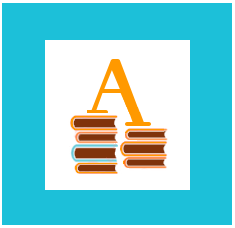 |
| Artwork by © Olivia Hernandez for the 10 ACTION STEPS FOR PUERTO RICO illustration project |
Howling winds and roaring waters still ring in my ears two years after Hurricane María ravaged the archipelago of Puerto Rico. I had often heard of storms that destroyed villages and cities, about people who had been forced to evacuate if they wanted to survive, who returned to nothing and had to start anew. But what happens when you can’t simply drive away? When you can’t just jump on an airplane to escape assured devastation? It wasn’t just a city or a town that needed to be evacuated—it was our entire archipelago, the place and space that held our memories, dreams, and hearts. What do you do then?
You wait. You wait and hope that you’ll make it through this because you know you’ve endured so much already. You see the hurricane slash through everything before you. You see it flood your surroundings. You see it pass and marvel at the destruction. You hope your family is okay, both those who live on the archipelago and those who live elsewhere. Your friends and relatives abroad are as desperate to communicate with you as you are with them. Then, you do some more waiting. You hear of communities without access to food, water, or medical help. You hear of people losing their loved ones. Taking a shower varies depending on your location…and your luck. The lines for food, ice, gas, and at the ATM are never-ending. You know that some people took matters into their own hands right from the very beginning, providing refuge to those in need even though they were also in need. And when you finally realize waiting will only bring more death, you too take matters into your own hands, and discover that you were self-sufficient all along.
The year 2018 was not easy. The official death toll kept changing. Our words were always the same: “We know how many people died. Just ask us.” It was heartbreaking when we learned that humanitarian supplies sent to the island were “found abandoned.” How many would have lived had those supplies reached them? And then, I couldn’t help but think that undelivered supplies were strategically “discovered” whenever it was politically expedient to prove that resources had indeed been sent. These “discoveries” were usually reported by the press whenever a new death toll number was announced, and everything seemed to connect. It was around that time that I knew we, the people, were just part of a political game.
It was, and to this day it continues to be, incredibly powerful watching how people have turned their sadness and anger into self-determination. It’s been beautiful to witness Puerto Ricans taking matters into our own hands and succeeding. We can determine our destiny and don’t have to depend on anyone else to decide it for us. Our stories neither begin nor end with two hurricanes. We are so much more. And with that mindset, we take ownership of our narratives, subvert narratives that silence and suppress us, create new ones, and resist.Our stories neither begin nor end with two hurricanes. We are so much more. And with that mindset, we take ownership of our narratives, subvert narratives that silence and suppress us, create new ones, and resist.
* * *
I officially started writing in 2017, in the aftermath of Hurricane María. In May 2018, on a full scholarship, I attended the Highlights Foundation's “Retell, Revisit, Reimagine: Writing Fresh Fairy Tales and Folklore for Older Readers” children’s writing workshop taught by authors Julie Dao and Anna-Marie McLemore. That same month, my debut short story “Civilized Alien” was published in Sábanas, a bilingual literary magazine started by students and a professor from the University of Puerto Rico, Mayagüez Campus. In July 2018, I attended the Kweli International Literary Festival on a full scholarship, where I participated in a master class taught by author Kali Fajardo-Anstine. In addition, I attended Kweli’s The Color of Children’s Literature Conference in April 2019, where I participated in a master class with literary agent Tiffany Liao. As a new writer, the fact that I’ve gotten to be in rooms with people I admire and respect is nothing short of amazing.
Growing up, I did read books where I saw myself represented, in a way, but the story was always the same—about loss, sadness, and lack of self-determination. There is a need for many types of stories in Puerto Rico, narratives where Boricuas and all children of color who live on the archipelago see themselves accurately represented. This is one of the reasons I decided to start writing fiction. While there are many children’s books by Boricuas that have been published in Puerto Rico, many are disregarded and/or not discussed under a critical lens due to the focus on knowing the literatures of Spain, Britain, and the United States. The children’s stories of home, or even from the extended Caribbean, must be elevated. It is vital that Boricuas and all children who live in Puerto Rico understand that there is a literature they can identify with, a literature that can empower them to write about their own lives using their authentic voices.
As an instructor to undergraduate students, I have taught, and will continue to teach young adult fiction by Boricuas, authors from the Caribbean, and people of color from all over the world. By equipping my students with culturally relevant young adult fiction, it is my hope that they awaken to the systems and structures that try to silence them in more ways than one, and that they are thus empowered to tell their own stories.















0 comments:
Post a Comment